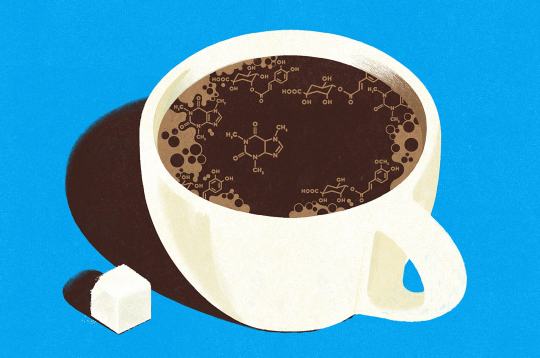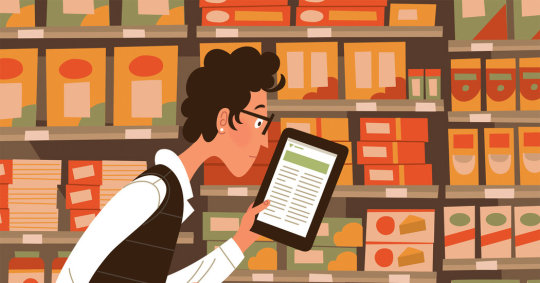#Walter C. Willett
Explore tagged Tumblr posts
Text
Harvard-Studie verrät: auf die Kaffee-Zubereitung kommt es an
Viele Mitmenschen können sich ein Leben ohne Kaffee gar nicht vorstellen. Ob morgens zum Aufstehen, zur Arbeit oder am Nachmittag zum Relaxen, ohne Kaffee geht es nicht. Unklar war bisher, ob Kaffeekonsum gesund ist oder nicht. Zumindest schienen sich die Studien zu widersprechen. Die einen wiesen auf die Gefahren des Koffeins hin, andere auf die gesundheitlichen Vorzüge. So weiß man zum…
#coffeenewstom#Acrylamid#Alkaloide#Antioxidantien#Coffeenewstom#Diterpene#Espresso#Filterkaffee#Frank B. Hu#French Press#Griechischer Kaffee#Harvard#Harvard School of Medicine#Harvard School of Public Health#Harvard-Studie#Kaffee#Koffein#Koffein und Gesundheit#Paracelsus#Rob M. van Dam#Türkischer Kaffee#Walter C. Willet#Walter C. Willett
0 notes
Text
˚ʚ♡ɞ˚ pinned post ˚ʚ♡ɞ˚
currently reading: eat, drink, and be healthy by dr. walter c. willett
currently watching: yellowjackets, ratched
currently playing: minecraft
currently listening:
[last updated: march 28th, ‘25]
1 note
·
View note
Photo

The Health Benefits of Coffee
Drinking coffee has been linked to a reduced risk of all kinds of ailments, including Parkinson’s disease, melanoma, prostate cancer, even suicide.
All of us should be happy to know that whatever it took to secure that favorite cup of Joe may actually have helped to keep us healthy. The latest assessments of the health effects of coffee and caffeine, its main active ingredient, are reassuring indeed. Their consumption has been linked to a reduced risk of all kinds of ailments, including Parkinson’s disease, heart disease, Type 2 diabetes, gallstones, depression, suicide, cirrhosis, liver cancer, melanoma and prostate cancer.
In fact, in numerous studies conducted throughout the world, consuming four or five eight-ounce cups of coffee (or about 400 milligrams of caffeine) a day has been associated with reduced death rates. In a study of more than 200,000 participants followed for up to 30 years, those who drank three to five cups of coffee a day, with or without caffeine, were 15 percent less likely to die early from all causes than were people who shunned coffee. Perhaps most dramatic was a 50 percent reduction in the risk of suicide among both men and women who were moderate coffee drinkers, perhaps by boosting production of brain chemicals that have antidepressant effects.
As a report published last summer by a research team at the Harvard School of Public Health concluded, although current evidence may not warrant recommending coffee or caffeine to prevent disease, for most people drinking coffee in moderation “can be part of a healthy lifestyle.”
It wasn’t always thus. I’ve lived through decades of sporadic warnings that coffee could be a health hazard. Over the years, coffee’s been deemed a cause of conditions such as heart disease, stroke, Type 2 diabetes, pancreatic cancer, anxiety disorder, nutrient deficiencies, gastric reflux disease, migraine, insomnia, and premature death. As recently as 1991, the World Health Organization listed coffee as a possible carcinogen. In some of the now-discredited studies, smoking, not coffee drinking (the two often went hand-in-hand) was responsible for the purported hazard.
“These periodic scares have given the public a very distorted view,” said Dr. Walter C. Willett, professor of nutrition and epidemiology at the Harvard T.H. Chan School of Public Health. “Overall, despite various concerns that have cropped up over the years, coffee is remarkably safe and has a number of important potential benefits.”
That’s not to say coffee warrants a totally clean bill of health. Caffeine crosses the placenta into the fetus, and coffee drinking during pregnancy can increase the risk of miscarriage, low birth weight and premature birth. Pregnancy alters how the body metabolizes caffeine, and women who are pregnant or nursing are advised to abstain entirely, stick to decaf or at the very least limit their caffeine intake to less than 200 milligrams a day, the amount in about two standard cups of American coffee.
The most common ill effect associated with caffeinated coffee is sleep disturbance. Caffeine locks into the same receptor in the brain as the neurotransmitter adenosine, a natural sedative. Dr. Willett, a co-author of the Harvard report, told me, “I really do love coffee, but I have it only occasionally because otherwise I don’t sleep very well. Lots of people with sleep problems don’t recognize the connection to coffee.”
In discussing his audiobook on caffeine with Terry Gross on NPR last winter, Michael Pollan called caffeine “the enemy of good sleep” because it interferes with deep sleep. He confessed that after the challenging task of weaning himself from coffee, he “was sleeping like a teenager again.”
Dr. Willett, now 75, said, “You don’t have to get to zero consumption to minimize the impact on sleep,” but he acknowledged that a person’s sensitivity to caffeine “probably increases with age.” People also vary widely in how rapidly they metabolize caffeine, enabling some to sleep soundly after drinking caffeinated coffee at dinner while others have trouble sleeping if they have coffee at lunch. But even if you can fall asleep readily after an evening coffee, it may disrupt your ability to get adequate deep sleep, Mr. Pollan states in his forthcoming book, “This Is Your Mind on Plants.”
Dr. Willett said it’s possible to develop a degree of tolerance to caffeine’s effect on sleep. However, acquiring a tolerance to caffeine could blunt its benefit if, say, you wanted it to help you stay alert and focused while driving or taking a test.
Caffeine is one of more than a thousand chemicals in coffee, not all of which are beneficial. Among others with positive effects are polyphenols and antioxidants. Polyphenols can inhibit the growth of cancer cells and lower the risk of Type 2 diabetes; antioxidants, which have anti-inflammatory effects, can counter both heart disease and cancer, the nation’s leading killers.
None of this means coffee is beneficial regardless of how it’s prepared. When brewed without a paper filter, as in French press, Norwegian boiled coffee, espresso or Turkish coffee, oily chemicals called diterpenes come through that can raise artery-damaging LDL cholesterol. However, these chemicals are virtually absent in both filtered and instant coffee.
Also countering the potential health benefits of coffee are popular additions some people use, like cream and sweet syrups, that can convert this calorie-free beverage into a calorie-rich dessert. “All the things people put into coffee can result in a junk food with as many as 500 to 600 calories,” Dr. Willett said. A 16-ounce Starbucks Mocha Frappuccino, for example, has 51 grams of sugar, 15 grams of fat (10 of them saturated) and 370 calories.
With iced coffee season approaching, more people are likely to turn to cold-brew coffee. Now rising in popularity, cold brew counters coffee’s natural acidity and the bitterness that results when boiling water is poured over the grounds. Cold brew is made by steeping the grounds in cold water for several hours, then straining the liquid through a paper filter to remove the grounds and harmful diterpenes and keep the flavor and caffeine for you to enjoy. Cold brew can also be made with decaffeinated coffee.
Decaf is not totally without health benefits. As with caffeinated coffee, the polyphenols it contains have anti-inflammatory properties that may lower the risk of Type 2 diabetes and cancer.
By Jane E. Brody (The New York Times). Illustration by Gracia Lam.
151 notes
·
View notes
Text
Cardiovascular Disease and Physical Activity
Female involvement in sports and physical activity has long been undermined within research and health promotion in the past (Oguma & Shinoda-Tagawa, 2004). However, this lack of representation is unfortunate given the importance of physical activity and a healthy lifestyle for women's health. Surely, lifestyle factors (such as physical activity participation, minimal screen time, and avoidance of drugs, smoking, and alcohol) are incredibly influential for minimizing the already enhanced risk of cardiovascular disease (CVD) within women (compared to men). For example, Chomistek et al. (2015) outlined the reduction of all-cause mortality due to cardiovascular disease, along with the incidence of cardiovascular-related health issues, to be minimized when women maintained recommended levels of physical activity! This is excellent news for women given the many unmodifiable factors that are currently contributing to higher CVD rates within the population, such as menopause, early menstruation onset, and contraceptives, to name a few (check out our previous posts for more information about these topics!).
Now you may be wondering, what are the recommended levels of physical activity?
Adults are advised to obtain at least 150 minutes of moderate to vigorous aerobic exercise per week, preferably in 10-minute bouts scattered throughout the week!
Aerobic activity can include going for a walk, bike ride with friends or family, or having a dance break to your favourite song! Additionally, it is recommended that adults participate in muscle-strengthening activities (such as weight lifting) and avoid prolonged bouts of sitting (Canadian Society for Exercise Physiology, 2021)
Oguma and Shinoda-Tagawa (2004) described the impact of physical activity on cardiovascular disease in women as a "dose-response," meaning that the more physical activity you do, the more significant the reduction in CVD risk. However, they also found that inactive women would benefit from even a little bit of exercise. For example, even as little as one hour of walking per week can reduce a woman's risk of developing overall CVD (including decreased risk for stroke and coronary heart disease (Oguma & Shinoda-Tagawa, 2004)!
Overall, physical activity is a great modifiable lifestyle factor that can significantly reduce women's risk of cardiovascular disease! It is important for women to participate in weekly (and possibly daily) physical activity to help reduce their risk of developing CVD, the leading cause of death for women.
P.S. Let us know your favourite way to get active in the comments!
P.P.S. Press keep reading for a full list of references!

References
Canadian Society for Exercise Physiology. (2021). Canadian Society for Exercise Physiology. https://csepguidelines.ca
Chomistek, A. K., ScD, Chiuve, S. E., ScD, Eliassen, A. H., ScD, Mukamal, Kenneth J., MD, MPH, Willett, Walter C., MD, DrPH, & Rimm, E. B., ScD. (2015). Healthy Lifestyle in the Primordial Prevention of Cardiovascular Disease Among Young Women. Journal of the American College of Cardiology, 65(1), 43-51. https://doi.org/10.1016/j.jacc.2014.10.024
Oguma, Y., & Shinoda-Tagawa, T. (2004). Physical activity decreases cardiovascular disease risk in women: Review and meta-analysis. Elsevier Inc. https://doi.org/10.1016/j.amepre.2004.02.007
#cardio#cardiovascular#cardiovascularfitness#cardiology#fitness#heart#hearthealth#womenshearthealth#health#womenswellness#womensheart#womensvital#physical activity#activity#aerobic#aerobic activity and fitness#walking#chaos walking#hiking#cycling
7 notes
·
View notes
Text




The Health Benefits of Coffee
Drinking coffee has been linked to a reduced risk of all kinds of ailments, including Parkinson’s disease, melanoma, prostate cancer, even suicide.
By Jane E. Brody. June 14, 2021
Americans sure love their coffee. Even last spring when the pandemic shut down New York, nearly every neighborhood shop that sold takeout coffee managed to stay open, and I was amazed at how many people ventured forth to start their stay-at-home days with a favorite store-made brew.One elderly friend who prepandemic had traveled from Brooklyn to Manhattan by subway to buy her preferred blend of ground coffee arranged to have it delivered. “Well worth the added cost,” she told me. I use machine-brewed coffee from pods, and last summer when it seemed reasonably safe for me to shop I stocked up on a year’s supply of the blends I like. (Happily, the pods are now recyclable.)All of us should be happy to know that whatever it took to secure that favorite cup of Joe may actually have helped to keep us healthy. The latest assessments of the health effects of coffee and caffeine, its main active ingredient, are reassuring indeed. Their consumption has been linked to a reduced risk of all kinds of ailments, including Parkinson’s disease, heart disease, Type 2 diabetes, gallstones, depression, suicide, cirrhosis, liver cancer, melanoma and prostate cancer.In fact, in numerous studies conducted throughout the world, consuming four or five eight-ounce cups of coffee (or about 400 milligrams of caffeine) a day has been associated with reduced death rates. In a study of more than 200,000 participants followed for up to 30 years, those who drank three to five cups of coffee a day, with or without caffeine, were 15 percent less likely to die early from all causes than were people who shunned coffee. Perhaps most dramatic was a 50 percent reduction in the risk of suicide among both men and women who were moderate coffee drinkers, perhaps by boosting production of brain chemicals that have antidepressant effects.
As a report published last summer by a research team at the Harvard School of Public Health concluded, although current evidence may not warrant recommending coffee or caffeine to prevent disease, for most people drinking coffee in moderation “can be part of a healthy lifestyle.”
It wasn’t always thus. I’ve lived through decades of sporadic warnings that coffee could be a health hazard. Over the years, coffee’s been deemed a cause of conditions such as heart disease, stroke, Type 2 diabetes, pancreatic cancer, anxiety disorder, nutrient deficiencies, gastric reflux disease, migraine, insomnia, and premature death. As recently as 1991, the World Health Organization listed coffee as a possible carcinogen. In some of the now-discredited studies, smoking, not coffee drinking (the two often went hand-in-hand) was responsible for the purported hazard.
“These periodic scares have given the public a very distorted view,” said Dr. Walter C. Willett, professor of nutrition and epidemiology at the Harvard T.H. Chan School of Public Health. “Overall, despite various concerns that have cropped up over the years, coffee is remarkably safe and has a number of important potential benefits.”
That’s not to say coffee warrants a totally clean bill of health. Caffeine crosses the placenta into the fetus, and coffee drinking during pregnancy can increase the risk of miscarriage, low birth weight and premature birth. Pregnancy alters how the body metabolizes caffeine, and women who are pregnant or nursing are advised to abstain entirely, stick to decaf or at the very least limit their caffeine intake to less than 200 milligrams a day, the amount in about two standard cups of American coffee.
The most common ill effect associated with caffeinated coffee is sleep disturbance. Caffeine locks into the same receptor in the brain as the neurotransmitter adenosine, a natural sedative. Dr. Willett, a co-author of the Harvard report, told me, “I really do love coffee, but I have it only occasionally because otherwise I don’t sleep very well. Lots of people with sleep problems don’t recognize the connection to coffee.”
In discussing his audiobook on caffeine with Terry Gross on NPR last winter, Michael Pollan called caffeine “the enemy of good sleep” because it interferes with deep sleep. He confessed that after the challenging task of weaning himself from coffee, he “was sleeping like a teenager again.”
Dr. Willett, now 75, said, “You don’t have to get to zero consumption to minimize the impact on sleep,” but he acknowledged that a person’s sensitivity to caffeine “probably increases with age.” People also vary widely in how rapidly they metabolize caffeine, enabling some to sleep soundly after drinking caffeinated coffee at dinner while others have trouble sleeping if they have coffee at lunch. But even if you can fall asleep readily after an evening coffee, it may disrupt your ability to get adequate deep sleep, Mr. Pollan states in his forthcoming book, “This Is Your Mind on Plants.”
Dr. Willett said it’s possible to develop a degree of tolerance to caffeine’s effect on sleep. My 75-year-old brother, an inveterate imbiber of caffeinated coffee, claims it has no effect on him. However, acquiring a tolerance to caffeine could blunt its benefit if, say, you wanted it to help you stay alert and focused while driving or taking a test.
Caffeine is one of more than a thousand chemicals in coffee, not all of which are beneficial. Among others with positive effects are polyphenols and antioxidants. Polyphenols can inhibit the growth of cancer cells and lower the risk of Type 2 diabetes; antioxidants, which have anti-inflammatory effects, can counter both heart disease and cancer, the nation’s leading killers.
None of this means coffee is beneficial regardless of how it’s prepared. When brewed without a paper filter, as in French press, Norwegian boiled coffee, espresso or Turkish coffee, oily chemicals called diterpenes come through that can raise artery-damaging LDL cholesterol. However, these chemicals are virtually absent in both filtered and instant coffee. Knowing I have a cholesterol problem, I dissected a coffee pod and found a paper filter lining the plastic cup. Whew!
Also countering the potential health benefits of coffee are popular additions some people use, like cream and sweet syrups, that can convert this calorie-free beverage into a calorie-rich dessert. “All the things people put into coffee can result in a junk food with as many as 500 to 600 calories,” Dr. Willett said. A 16-ounce Starbucks Mocha Frappuccino, for example, has 51 grams of sugar, 15 grams of fat (10 of them saturated) and 370 calories.
With iced coffee season approaching, more people are likely to turn to cold-brew coffee. Now rising in popularity, cold brew counters coffee’s natural acidity and the bitterness that results when boiling water is poured over the grounds. Cold brew is made by steeping the grounds in cold water for several hours, then straining the liquid through a paper filter to remove the grounds and harmful diterpenes and keep the flavor and caffeine for you to enjoy. Cold brew can also be made with decaffeinated coffee.Decaf is not totally without health benefits. As with caffeinated coffee, the polyphenols it contains have anti-inflammatory properties that may lower the risk of Type 2 diabetes and cancer.
Jane Brody is the Personal Health columnist, a position she has held since 1976. She has written more than a dozen books including the best sellers “Jane Brody’s Nutrition Book” and “Jane Brody’s Good Food Book.”
https://www.nytimes.com/2021/06/14/well/eat/coffee-health-benefits.html?utm_source=pocket-newtab
3 notes
·
View notes
Text
Download PDF Nutritional Epidemiology PDF -- Walter C. Willett
Download Or Read PDF Nutritional Epidemiology - Walter C. Willett Free Full Pages Online With Audiobook.

[*] Download PDF Here => Nutritional Epidemiology
[*] Read PDF Here => Nutritional Epidemiology
0 notes
Text
[Research Discussion] Consumption of Olive Oil and Risk of Total and Cause-Specific Mortality Among U.S. Adults
This research was conducted by: Marta Guasch-Ferré, Yanping Li, Walter C. Willett, Qi Sun, Laura Sampson, Jordi Salas-Salvadó, Miguel A. Martínez-González, Meir J. Stampfer, and Frank B. Hu
This research was published by: Journal of the American College of Cardiology
https://www.jacc.org/doi/full/10.1016/j.jacc.2021.10.041
Conclusions:
Higher olive oil intake was associated with lower risk of total and cause-specific mortality. Replacing margarine, butter, mayonnaise, and dairy fat with olive oil was associated with lower risk of mortality.
submitted by /u/The__Stifmeister [link] [comments] from Nutrition https://ift.tt/3I4geSa
0 notes
Text
Times of India highlights the health benefits of eating plant-based
India's leading daily newspaper, The Times Of India, published a double-page article praising plant-based diets.
The author claims that a plant-based diet is the most nutritional and has the most negligible environmental impact.
Even though India is widely regarded as a vegetarian country, the article claims the traditional and sustainable diet is changing towards a more industrialized diet, topped with more meat, refined grains, and sugar.
Global warming
Climate change is believed to have caused raging heat waves in recent years, prompting the country to promote whole food plant-based diets.
An interview with a Harvard University professor of epidemiology and nutrition highlights the health benefits of plant-based eating.
Degradation of the ecosystem
Dr Walter C Willett, a professor of medicine at Harvard Medical School, said: "Eating plants is much more efficient than feeding them to animals and then eating the animals."
He concluded that we could sustainably produce about two servings of animal-sourced foods per day based on analyses of the global community.
He added that exceeding these numbers would be "incompatible with environmental sustainability." Also, he said: "The resulting ecological degradation would end up threatening global food production."
Beneficial effects on health
In terms of health benefits, Prof. Willett explained that plants rich in nutrients could replace meat in almost everything.
Plant-based proteins can reduce bad cholesterol.
Decrease in disease
Plant-based Health Professionals UK board member Rohini Bajekal also agrees. The Indian diet has been dominated by plant protein sources such as legumes and grains for centuries.
India can reduce the burden of chronic lifestyle diseases such as diabetes, heart disease, and high blood pressure by shifting away from ultra-processed foods and animal products, such as dairy.
"Animal agriculture is a major factor driving the climate crisis and global food insecurity", Rohini claimed.
0 notes
Text
Times of India highlights the health benefits of eating plant-based
India's leading daily newspaper, The Times Of India, published a double-page article praising plant-based diets.
The author claims that a plant-based diet is the most nutritional and has the most negligible environmental impact.
Even though India is widely regarded as a vegetarian country, the article claims the traditional and sustainable diet is changing towards a more industrialized diet, topped with more meat, refined grains, and sugar.
Global warming
Climate change is believed to have caused raging heat waves in recent years, prompting the country to promote whole food plant-based diets.
An interview with a Harvard University professor of epidemiology and nutrition highlights the health benefits of plant-based eating.
Degradation of the ecosystem
Dr Walter C Willett, a professor of medicine at Harvard Medical School, said: "Eating plants is much more efficient than feeding them to animals and then eating the animals."
He concluded that we could sustainably produce about two servings of animal-sourced foods per day based on analyses of the global community.
He added that exceeding these numbers would be "incompatible with environmental sustainability." Also, he said: "The resulting ecological degradation would end up threatening global food production."
Beneficial effects on health
In terms of health benefits, Prof. Willett explained that plants rich in nutrients could replace meat in almost everything.
Plant-based proteins can reduce bad cholesterol.
Decrease in disease
Plant-based Health Professionals UK board member Rohini Bajekal also agrees. The Indian diet has been dominated by plant protein sources such as legumes and grains for centuries.
India can reduce the burden of chronic lifestyle diseases such as diabetes, heart disease, and high blood pressure by shifting away from ultra-processed foods and animal products, such as dairy.
"Animal agriculture is a major factor driving the climate crisis and global food insecurity", Rohini claimed.
0 notes
Text
That morning cup of coffee you love? It turns out to boost your health too
We sure love our coffee. Even during the lockdown, many of us managed to keep buying our daily ground coffee or single-serve cups for Americano or flat coffee. Therefore, we should all be happy to know that those drinks may have helped us stay healthy. The latest evaluations of the health effects of coffee and caffeine, its main active ingredient, are truly reassuring. Its use has been linked to a reduced risk of all types of ailments, including Parkinson's disease, heart disease, type 2 diabetes, gallstones, depression, suicide, cirrhosis, liver cancer, melanoma, and prostate cancer.
In fact, in numerous studies around the world, consuming enough coffee to provide 400 mg of caffeine per day has been associated with reduced death rates. It's about four or five cups of regular coffee. In terms of takeout, a shot of espresso contains 60-65mg of caffeine, and a latte, cappuccino, or flat white generally contains at least one or two shots. (At liquid coffees , you'll get 150 mg of caffeine from a Grande cappuccino and 225 mg from a Venti cappuccino.)
In general, despite various concerns that have come up over the years, coffee is very safe and has several important potential benefits.
In a study of more than 200,000 participants followed for up to 30 years, those who drank three to five cups of coffee a day, with or without caffeine, were 15 percent less likely to die prematurely from all causes than people who avoided coffee. Perhaps most dramatic was a 50 percent reduction in suicide risk among men and women who were moderate coffee drinkers, perhaps by increasing the production of brain chemicals that have antidepressant effects.
As a report published last summer by a Harvard School of Public Health research team concluded, although current evidence may not justify recommending coffee or caffeine for disease prevention, drinking coffee in moderation "may be part of a lifestyle. healthy "for most people.
It was not always like this. I've had decades of sporadic warnings that coffee could be a health hazard. Over the years, coffee has been considered a cause of conditions such as heart disease, stroke, type 2 diabetes, pancreatic cancer, anxiety disorder, nutrient deficiencies, gastric reflux disease, migraine, insomnia, and premature death. As recently as 1991, the World Health Organization listed coffee as a possible carcinogen. In some of the now-discredited studies, smoking, not drinking coffee (the two often went hand in hand), was responsible for the alleged danger.
"These periodic scares have given the public a very distorted view," says Dr. Walter C Willett, professor of nutrition and epidemiology at the Harvard TH Chan School of Public Health. "In general, despite various concerns that have arisen over the years, coffee is very safe and has several important potential benefits."
Even if you can easily fall asleep after coffee in the evening, it can affect your ability to get enough sleep.
That is not to say that coffee justifies good health. Caffeine crosses the placenta to the fetus and drinking coffee during pregnancy can increase the risk of miscarriage, low birth weight, and preterm labor. Pregnancy alters the way the body metabolizes caffeine, and pregnant or breastfeeding women are advised to abstain completely, stick to decaf, or at least limit their caffeine intake to less than 200 mg up to date.
The most common harmful effect associated with caffeinated coffee is sleep disturbance. Caffeine blocks at the same receptor in the brain as the neurotransmitter adenosine, a natural sedative. Dr. Willett, a co-author of the Harvard report, says: “I love coffee, but I only drink it occasionally because otherwise, I don't sleep very well. A lot of people with sleep problems don't recognize the coffee connection. "
Discussing his caffeine audiobook with Terry Gross on US National Public Radio last winter, Michael Pollan called caffeine "the enemy of good sleep" because it interferes with deep sleep. He confessed that after the challenging task of giving up coffee, he "went back to sleep as a teenager."
Willett, now 75, says, "You don't need to go zero to minimize the impact on sleep," but he acknowledges that a person's sensitivity to caffeine "probably increases with age." People also vary widely in how quickly they metabolize caffeine, allowing some to sleep soundly after drinking caffeinated coffee at dinner, while others have trouble sleeping if they have coffee for lunch. But even if you can easily fall asleep after a late-night coffee, it can disrupt your ability to sleep soundly, Pollan writes in his forthcoming book, This Is Your Mind on Plants.
Willett says that it is possible to develop a degree of tolerance to the effect of caffeine on sleep. My 75-year-old brother, a heavy caffeinated coffee drinker, claims he is not affected by it. However, gaining tolerance to caffeine could reduce his benefit if, for example, he wanted it to help him stay alert and focused while he was driving or
taking a test.
All the things that people put in a coffee can result in junk food with up to 500 to 600 calories.
Caffeine is one of the more than 1,000 chemicals in coffee, and not all of them are beneficial. Among others with positive effects are polyphenols and antioxidants. Polyphenols can inhibit the growth of cancer cells and reduce the risk of type 2 diabetes; Antioxidants, which have anti-inflammatory effects, can fight heart disease and cancer, both of which are top killers.
None of this means that coffee is beneficial regardless of how it is prepared. When brewed without a paper filter, as in the French press, Norwegian boiled coffee, espresso, or Turkish coffee, oily chemicals called diterpenes are leaked out that can increase your artery-damaging LDL cholesterol. However, these chemicals are practically absent in both filtered and instant coffee. Knowing that I have a cholesterol problem, I dissected a coffee pod and found a paper filter that covered the plastic cup. Phew!
Also counteracting the potential health benefits of coffee are popular additions some people use, such as cream and sweet syrups, that can turn this zero-calorie drink into a high-calorie dessert. "All the things that people put in a coffee can result in junk food with up to 500 to 600 calories," says Dr. Willett. A Grande Starbucks Mocha Frappuccino, for example, has about 36.8 g of sugar, 16.3 g of fat (11.5 of them saturated), and 312 calories.
With the arrival of iced coffee season, more people are likely to turn to cold-brewed coffee. Now gaining popularity, cold brew counteracts the natural acidity of coffee and the bitterness that results when boiling water is poured over ground coffee. Cold brewing is made by soaking the grounds in cold water for several hours, then filtering the liquid through a paper filter to remove harmful grounds and diterpenes and maintain the flavor and caffeine for your enjoyment. Cold-brew can also be made with decaffeinated coffee.
Decaf isn't entirely without health benefits. As with caffeinated coffee, the polyphenols it contains have anti-inflammatory properties that can reduce the risk of type 2 diabetes and cancer. - New York Times
0 notes
Text
A Year In, Here's What We Know About Vitamin D For Preventing COVID
When the pandemic hit, many Americans turned to vitamins and supplements in hopes of boosting their immune systems. หวย บอล เกมส์ คาสิโนออนไลน์
Scientists also raced to study them. Vitamin D, perhaps more than any other, captured the attention of researchers.
Even the nation's top infectious disease doctor, Anthony Fauci, embraced the idea of using the vitamin to help keep COVID-19 at bay, saying in September that he takes a supplement to avoid being deficient and "would not mind recommending" it to others.
So should you take vitamin D to prevent or even treat COVID-19?
More than a year into the pandemic, many of the studies that can offer high-quality evidence are still in the works, but there's now enough out there to offer clues — as well as fodder for spirited debate — about the question.
But first — why vitamin D?
It's unrealistic to think any one supplement can be a cure-all, but there are some compelling reasons to study vitamin D in the context of COVID-19.
Vitamin D plays a vital role in bone health and, along with calcium, helps prevent people from developing osteoporosis. And there's growing evidence it helps keep the immune system running properly.
Article continues after sponsor message
In recent years, researchers have increasingly studied the effect of vitamin D supplementation on respiratory infections, with some clinical trials finding no meaningful effect and others suggesting it can be protective.
A 2017 review study that analyzed 25 randomized, controlled trials concluded vitamin D helped prevent acute respiratory tract infections.
Vitamin D may help boost the innate immune system in a number of ways, said Dr. Adit Ginde, a professor of emergency medicine at the University of Colorado School of Medicine and one of the study's authors. One mechanism, he said, is by increasing antimicrobial peptides, which function as natural antibiotic and antiviral guards against pathogens.
Though some researchers are not yet convinced of the evidence for vitamin D and respiratory illness, others, such as Ginde, are. "Based on those mechanisms, prevention [of COVID-19] would be the first scenario that you would expect to work," Ginde said. "It's also very clear deficiency causes dysfunction in the immune system."
The link with COVID-19
It's estimated as much as 40% of the U.S. population doesn't get enough vitamin D and as many as 1 billion people worldwide have deficient levels.
Early in the pandemic, researchers noticed the overlap between populations that were at high risk of severe illness from COVID-19 and those likely to have vitamin D deficiency, in particular people who are overweight, elderly and those with darker skin.
It sparked a rush of commentary and academic articles on whether boosting vitamin D levels could help shield certain vulnerable people from coronavirus infection.
There are now quite a few observational studies and large reviews of the available evidence that show low vitamin D levels are associated with higher risks of contracting COVID-19 or with becoming seriously ill.
"What is clear from a number of studies is that there's a strong relationship in terms of your levels prior to infection," said Dr. Shad Marvasti, a professor of family and preventive medicine at the University of Arizona College of Medicine in Phoenix.
Low levels of vitamin D are associated with an increase in cytokines — "cell to cell chemical messengers that are responsible for inflammation" — and lower levels of protective immune cells, Marvasti said.
A study of 489 patients published in JAMA Network Open in September found "the relative risk of testing positive for COVID-19 was 1.77 times greater" for patients who were likely vitamin D deficient compared with those with sufficient levels.
"That was really very striking," said Dr. David Meltzer at the University of Chicago, who was the lead author of that study. "I started taking it and telling all my family and friends."
In another recent study, Meltzer has also found that Black individuals with high levels of vitamin D were less likely to test positive than those who had levels traditionally considered sufficient.
Another small study of patients hospitalized for COVID-19 in Spain found over 80% had vitamin D deficiency, compared with 47% of the general population; however, it did not find any relationship between vitamin D levels and the severity of disease.
"If I had money on it, I would bet that it's more likely that vitamin D is helpful than not in COVID, but I don't know for sure," Meltzer said.
Because of inconsistent findings of vitamin D studies, "at this point in time, we can't really draw any firm conclusions," says Walter Willett, a professor of nutrition and epidemiology at the Harvard T.H. Chan School of Public Health.
Michele Abercrombie/NPR
No "firm conclusions"
While these studies raised hopes among some researchers, others are skeptical, noting that most of these are observational studies, not the gold-standard randomized, controlled trials.
Much of the available evidence only shows association — not causation — and even those results are mixed, said Walter Willett, a professor of nutrition and epidemiology at the Harvard T.H. Chan School of Public Health.
"It would be one thing if we had very consistent evidence, but it's showing either some benefit or no benefit at all," Willett said. "At this point in time, we can't really draw any firm conclusions."
SHOTS - HEALTH NEWS
Vitamin D And Fish Oil Supplements Mostly Disappoint In Long-Awaited Research Results
Indeed, some observational studies have found no significant associations when it comes to key questions around COVID-19 and vitamin D levels.
Researchers in Greece recently concluded that vitamin D deficiency was "not significantly associated with infections, recoveries or mortality rate of COVID-19 among European countries." And, in December, an agency for the U.K.'s National Health Service reviewed the evidence and advised the public not to take vitamin D solely to prevent or treat COVID-19.
"We haven't ruled out vitamin D completely, but I'm skeptical, having worked in this field for 15 years," said Dr. Erin Michos at Johns Hopkins School of Medicine, who has studied the effect of vitamin D on heart attacks, strokes and other cardiovascular diseases.
Researchers have spent years tracing the association between low vitamin D and other diseases — obesity, diabetes, cardiovascular disease, depression, multiple sclerosis and cancer — but have either ended up with inconsistent results, or found no clear benefit from supplementation.
People with low vitamin D levels tend to be less healthy overall: They spend less time outdoors and have less exposure to sunlight, and people who are overweight often have lower levels because fat cells sequester vitamin D.
"So vitamin D deficiency is associated with things like older age, obesity and being a minority ethnicity," Michos said. "Yet those are the same risk factors that are associated with severe COVID."
This overlap makes studying the impact of vitamin D on COVID-19 tricky because it's difficult to tease apart whether low levels are actually causing people to be more susceptible.
"It may just be a marker of poor health and not actually something that can be intervened on to prevent COVID," Michos said.
What about treating COVID-19?
Research on using vitamin D as a therapeutic intervention once people are infected with the coronavirus has produced slightly more high-quality data, although the studies offer an inconsistent picture.
The most substantive evidence comes from a randomized, placebo-controlled trial in Brazil. There, doctors gave hospitalized COVID-19 patients one large dose of vitamin D and concluded it "did not significantly" reduce patients' length of stay in the hospital compared with the placebo group.
There are some caveats: Patients did not receive vitamin D until later in the illness, and it was a single large dose, rather than more incremental, frequent dosing, which seems to "work better for protecting immune function," the University of Chicago's Meltzer said.
While the 240-person study could have easily missed "clinically important benefits," the results are not encouraging, said Ginde of the University of Colorado, who co-wrote an editorial about vitamin D and COVID-19 for JAMA.
"If it was a panacea, you would see it," he said.
So what should you do?
So far, there is simply not enough evidence to recommend confidently taking a certain dose of vitamin D to fight off COVID-19, but experts stress it's reasonable to pay attention to whether people are getting enough, especially during winter months when levels tend to sink.
"There are many good reasons to avoid low vitamin D levels. ... A supplement is really the most reliable way to get it," Harvard's Willett said.
But, as with many vitamins, Willett stresses that "more is not better."
Because vitamin D is fat-soluble (unlike vitamin C, which is water-soluble), there is a risk that overshooting with supplementation can lead to toxicity, with some research showing that taking more than 50,000 IU, or international units, regularly can be harmful.
There are varying guidelines for how much vitamin D adults should get on a daily basis, ranging from about 400 to 1,000 international units, according to the Endocrine Society.
Enlarge this image
As with many vitamins, Harvard's Willett stresses that "more is not better." It's best to talk to your doctor before choosing a dose size.
Michele Abercrombie/NPR
Marvasti said most people could "probably get away with about 1,000 IU per day," although it's best to first check your baseline levels and speak to a doctor.
"Given the role that vitamin D is known to play in immunity and other medical conditions, to me, what's the harm?"
Some clinicians are more wary.
"I'm not advising patients to take it to prevent COVID-19," said Michos at Johns Hopkins.
Putting aside the debate over vitamin D, Michos points out there are plenty of time-tested ways to boost the immune system — eating vitamin-rich food such as fruits and vegetables, exercising regularly, drinking alcohol in moderation and importantly, getting enough sleep.
"I don't think that patients need to necessarily waste their money on supplements," she said.
But Meltzer, who is more hopeful about the potential benefits of taking vitamin D, points out there are still big gaps in the understanding of what is a "normal" level, "because those have been defined largely on bone health."
"We don't know really what the ideal levels are for immune function," he said. "Depending on your skin tone and racial background or genetic background, there are very, very different needs, so this is an area that desperately needs more data."
0 notes
Text
"We Know What is Best For You" - Blog Post #2 - Daniel Long
Taxation has been passed as a means of reducing the intake of beverages containing sugar thereby lowering health care costs. It also generates revenue that governments can use for health programs. Taxation of food is a not a problem for everyone. The wealthy have no problem affording the increase in price of the goods they desire. These taxes are affecting the poor because eating healthy is more expensive. This issue is important because it has opened a door to taxing foods based on what the government believes is best for us. There may be health benefits to consuming less sugar, but that should be our decision to make and we should not be charged a tax on our sweeter preferences.
I found an article in The New England Journal of Medicine using Google Scholar that gives a very detailed look into the sugar tax and the intended health benefits imposing the tax might achieve. The authors are Kelly D. Brownell, Ph.D., Thomas Farley, M.D., M.P.H., Walter C. Willett, M.D., Dr.P.H., Barry M. Popkin, Ph.D., Frank J. Chaloupka, Ph.D., Joseph W. Thompson, M.D., M.P.H., and David S. Ludwig, M.D., Ph.D. These are all very credible and highly educated authors whose research has been published numerous times. The purpose of the article is detailing how the tax would indeed help reduce obesity, diabetes, and heart disease, while also generating revenue to fight the existing obesity issue. The authors site many case studies showing a direct link between sugar consumption and weight gain. The article also talks about how people care more about immediate satisfaction from sugar than the long term health effects, so economically it is in their best intentions to have a tax imposed to deter them from buying these products. To me, it seems as if the writers have written this paper for government entities in an effort to persuade them into adapting this tax legislation.
The conclusion of the article describes how effectively manipulating the price by imposing an additional tax on these goods will reduce consumption, lowering health costs as a result, and will also become routine over a period of time. They also believe a nationwide tax of 1 cent per ounce would raise $14.9 billion in Federal revenue alone, while also creating more revenue for the state.
I believe it's important for me to understand the reasons why this is happening before I can dispute it. The more I research this topic, the more I see a legitimate health concern. I have been thinking of alternative ways to reduce consumption without imposing any additional expenses for consumers. Perhaps they could ban sugar drinks from Food Stamp programs nationwide. That would reduce the amount consumed and possibly lead to beverage selections with a higher nutritional value. Another solution would be to restrict the amount of sugar that producers could legally put in drinks, although that would probably change the flavor of the items, and I don’t want that to happen. The bottom line I am trying to portray is that it should my freedom to eat and drink what I want without paying additional taxes. At my current job, I have to sign an affidavit attesting to whether or not I use tobacco products and they charge tobacco users a higher premium for insurance. I would imagine once we do not see the reduction in consumption over time as the health care providers expect, they will target individual users and raise their premiums.
Link to article: http://www.nejm.org/doi/full/10.1056/nejmhpr0905723#t=article
1 note
·
View note
Text
For Cardiovascular Health Plant Food Quality Matters

MedicalResearch.com Interview with: Dr. Baden Megu Baden, MD, PhD Department of Nutrition Harvard T. H. Chan School of Public Health Boston, MA02115 MedicalResearch.com: What is the background for this study? Would you give an example of healthful vs non-healthful plantbased diet? Response: Plant-based diets are recommended for health and recently also for their environmental benefits. However, most previous studies defined it as either vegetarian or non-vegetarian, and importantly, without differentiation for the quality of plant foods. As you know, not all plant foods are equally good to our health. Therefore, to capture the quality of plant-based diets, we established overall, healthful and unhealthful plant-based diet indices. A higher score on the overall plant based diet index indicates greater intake of all types of plant foods and less of animal foods. A higher score on the healthful plant based diet index indicates greater intake of only healthy plant foods (whole grains, fruits, vegetables, nuts, legumes, vegetable oils, tea/coffee), and less of less healthy plant foods (fruit juices, refined grains, potatoes, sugar-sweetened beverages, sweets/desserts) and animal foods. A higher score on the unhealthful plant based diet index indicates greater intake of only less healthy plant foods, and less of healthy plant foods and animal foods. In this study, we used these plant-based diet indices and investigated the associations between 12-year changes in plant-based diet quality and subsequent total and cause-specific mortality in two large US cohorts. MedicalResearch.com: What are the main findings? Response: Improving plant-based diet quality over a 12-year period was associated with subsequent lower risk of total and cardiovascular disease mortality, whereas increased consumption of an unhealthful plant-based diet was associated with a higher risk of total and cardiovascular disease mortality. MedicalResearch.com: What should readers take away from your report? Response: Increasing intakes of healthy plant foods and decreasing intakes of less healthy and/or animal foods can lower the future risk of mortality. MedicalResearch.com: What recommendations do you have for future research as a result of this work? Response: It would be important to replicate our findings in other large cohorts. Also, we would like to integrate the recent omics technology, such as metabolomics and gut microbiome, and investigate to examine the mechanisms underlying the association between improved plant-based diet quality and lower mortality risk. Any disclosures? Dr. Li and Dr. Hu reported receiving research support from California Walnut Commission. Dr. Satija is currently employed at Analysis Group, Inc. All other authors have no conflict of interest to disclose. Citation: Changes in Plant-Based Diet Quality and Total and Cause-Specific Mortality Megu Y. Baden,Gang Liu, Ambika Satija, Yanping Li, Qi Sun, Teresa T. Fung, Eric B. Rimm, Walter C. Willett, Frank B. Hu, and Shilpa N. Bhupathiraju Originally published12 Aug 2019 https://doi.org/10.1161/CIRCULATIONAHA.119.041014 Circulation. https://www.ahajournals.org/doi/10.1161/CIRCULATIONAHA.119.041014 Last Modified: The information on MedicalResearch.com is provided for educational purposes only, and is in no way intended to diagnose, cure, or treat any medical or other condition. Always seek the advice of your physician or other qualified health and ask your doctor any questions you may have regarding a medical condition. In addition to all other limitations and disclaimers in this agreement, service provider and its third party providers disclaim any liability or loss in connection with the content provided on this website. Read the full article
0 notes
Text
Pearls From: Walter C. Willett, MD, DrPH
(MedPage Today) -- Setting the record straight on the great butter debate Pearls From: Walter C. Willett, MD, DrPH
0 notes
Text
Pearls From: Walter C. Willett, MD, DrPH
(MedPage Today) -- Setting the record straight on the great butter debate Pearls From: Walter C. Willett, MD, DrPH
0 notes
Text
They Took On the Food Giants — and Won

Dr. Walter C. Willett, an internationally regarded researcher and professor of epidemiology and nutrition at the Harvard T.H. Chan School of Public Health, said Americans would know a lot less about the foods they eat and how their health could suffer were it not for C.S.P.I.
“Quite a bit of public dollars and scientific effort have demonstrated a clear relationship between diets and long-term…
View On WordPress
0 notes